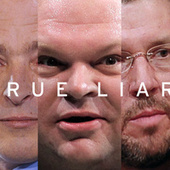...If you’re applying a data-driven lens, as Jeff Sonderman highlighted at the Poynter Institute, you’ll need to ask a series of basic questions.“In every situation you face, there will be unique considerations about whether and how to publish a set of data,” he wrote. “Don’t assume data is inherently accurate, fair and objective. Don’t mistake your access to data or your right to publish it as a legitimate rationale for doing so. Think critically about the public good and potential harm, the context surrounding the data and its relevance to your other reporting. Then decide whether your data publishing is journalism.”...
Research and publish the best content.
Get Started for FREE
Sign up with Facebook Sign up with X
I don't have a Facebook or a X account
Already have an account: Login
Social marketing, PR insight & thought leadership - from The PR Coach
Curated by
Jeff Domansky
 Your new post is loading... Your new post is loading...
 Your new post is loading... Your new post is loading...
|
|














Ethics in journalism has always been very important and will continue to be important. Data journalism is no different. You must follow your code of ethics and make sure that you don't cross any lines of privacy while researching for your story and while writing it.